Filipino Fisherman Chased By China Coast Guard In Disputed Waters

Filipino fisherman Arnel Satam guns the motor of his tiny wooden boat as he makes a dash for the shallow waters of Scarborough Shoal in the disputed South China Sea, with Chinese coast guard speedboats in hot pursuit.
In a high-seas chase lasting several minutes, Satam tries in vain to outrun the faster boats in the hope of slipping inside the ring of reefs controlled by China, where fish are more abundant.
Friday's pursuit was witnessed by AFP journalists on board the Philippine Bureau of Fisheries and Aquatic Resources ship BRP Datu Bankaw, which was delivering food, water and fuel to Filipino fishermen plying the contested waters, sometimes for weeks on end.
The fishermen complained that China's actions at Scarborough Shoal were robbing them of a key source of income and a place to shelter safely during a storm.
"I want to fish in there," a defiant Satam, 54, told journalists as he stood barefoot on his light blue outrigger bearing a Superman "S" emblem.
"I do this thing often. They already chased me earlier today," he said, adding the Chinese speedboats had bumped his vessel.
"I just laughed at them."
Scarborough Shoal is 240 kilometres (150 miles) west of the Philippines' main island of Luzon and nearly 900 kilometres from the nearest major Chinese land mass of Hainan.
Under the 1982 United Nations Convention on the Law of the Sea, which China helped negotiate, countries have jurisdiction over the natural resources within about 200 nautical miles (370 kilometres) of their shore.
China, which claims sovereignty over almost the entire South China Sea, snatched control of Scarborough Shoal from the Philippines in 2012.
Since then, it has deployed coast guard and other vessels to block or restrict access to the fishing ground that has been tapped by generations of Filipinos.
Philippine officials also accused the Chinese coast guard of laying a 300-metre (-yard) long floating barrier across the entrance to the shoal shortly before the BRP Datu Bankaw arrived.
The temporary barrier "prevents Filipino Fishing Boats from entering the shoal and depriving them of their fishing and livelihood activities," the Philippine coast guard and fisheries bureau said in a joint statement condemning its installation.
It took 18 hours for the BRP Datu Bankaw to make the more than 300 kilometre journey to Scarborough Shoal from a port in Manila Bay.
More than 50 wooden outrigger fishing vessels, which Filipinos call "mother boats", were operating in the deep waters outside the shoal when the Philippine ship dropped anchor last Wednesday.
Some of the fishing crews had been there for two weeks already using nets, lines and spears to catch tuna, grouper and red snapper.
To enable them to stay at sea for longer and catch more fish, the Bureau of Fisheries and Aquatic Resources carries out regular resupply missions.
Four Chinese coast guard boats patrolled the waters, keeping the BRP Datu Bankaw and Filipino fishermen away from the shoal.
The voice of a Chinese coast guard radio operator crackled over the airwaves 15 times, ordering the BRP Datu Bankaw to "immediately" leave "Chinese territory".
The instruction was repeated in English on a scrolling digital message board on one of the Chinese coast guard vessels.
Unfazed by the warnings, the 12 crew members of the BRP Datu Bankaw distributed 60 tonnes of fuel in blue plastic jerry cans to the fishing boats, as well as food packs for those running low on provisions.
The supplies were free for the fishermen, but some showed their gratitude by giving the BRP Datu Bankaw crew tubs of freshly caught fish.
"We are very grateful for this assistance," said Johnny Arpon, 53, whose 10-metre boat "Janica" arrived at the shoal in time to stock up on extra diesel.
Some of the Filipino fishermen crowding around the BRP Bankaw in small outriggers to receive provisions climbed aboard to eat snacks and drink fresh water.
They told journalists they had been chased and water cannoned by Chinese vessels in the past and even had their anchors cut.
"They should give it back to us because this is ours," said Nonoy de los Reyes, 40, referring to Scarborough Shoal.
"They should leave this place."
After decades of overfishing by countries surrounding the waters, the men have to spend longer at sea to catch enough fish to cover their costs and, hopefully, make a small profit.
China's blocking of the shoal had made the situation even tougher and the fishermen said they hated them for it.
"We barely have any catch so we'll probably need to stay two more weeks," said Alex del Campo, 41, who had already spent more than a week at sea.
A day earlier, del Campo and two other fishermen had made a daring bid to enter the shoal in their small boats, but were chased away by Chinese coast guard personnel in rigid-hulled inflatable vessels.
"We are defenceless because they are armed and there was just one fisherman in each of our three boats," del Campo said.
"If they ram and sink our boats who will save us?"
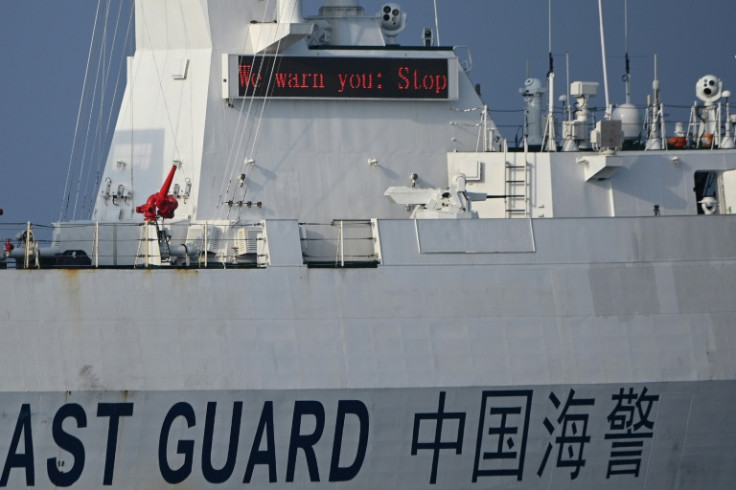
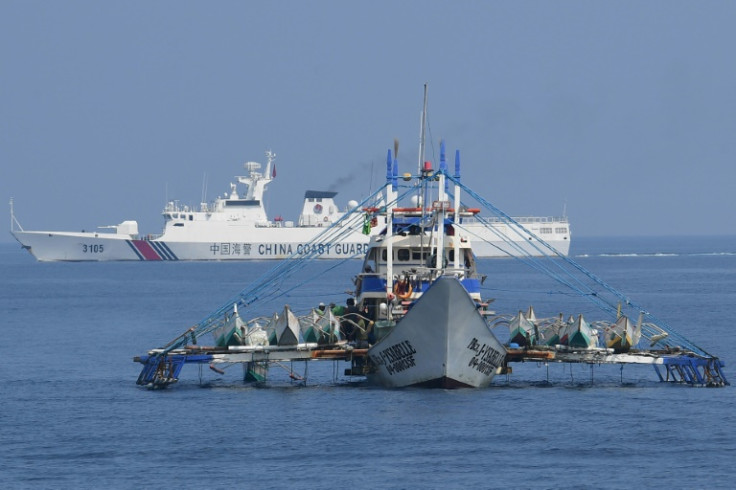
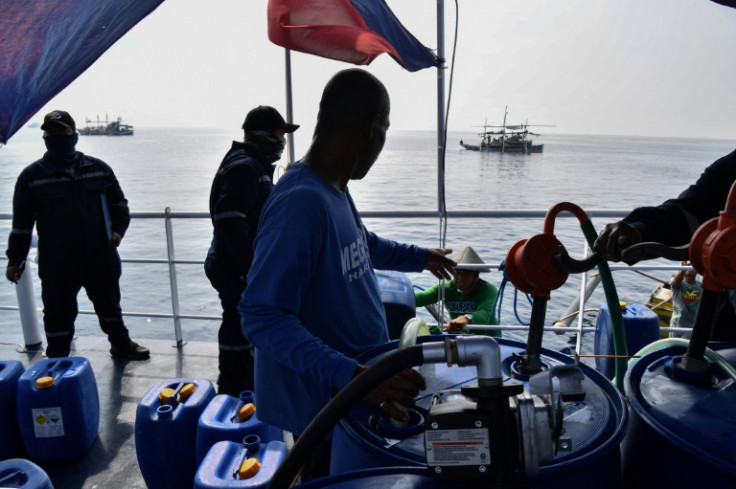
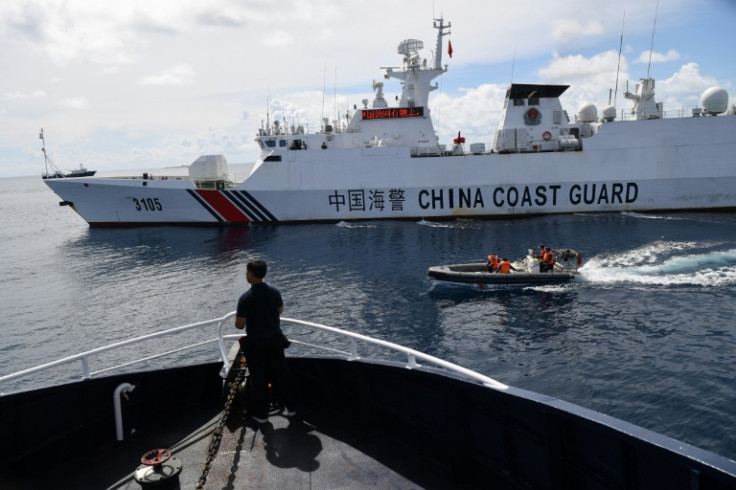
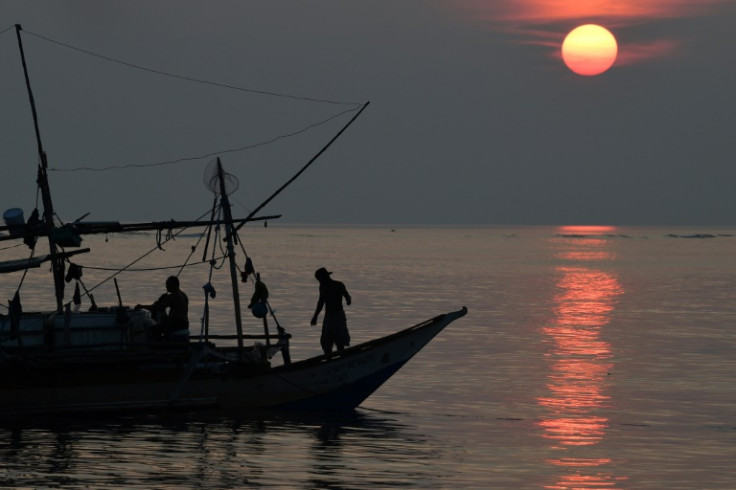
© Copyright AFP 2024. All rights reserved.







